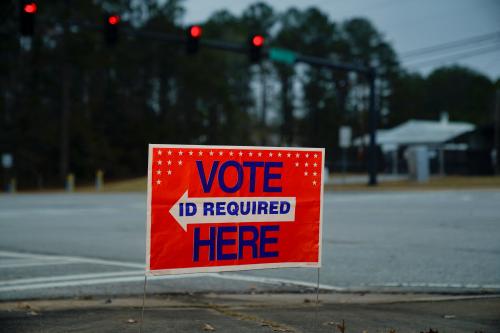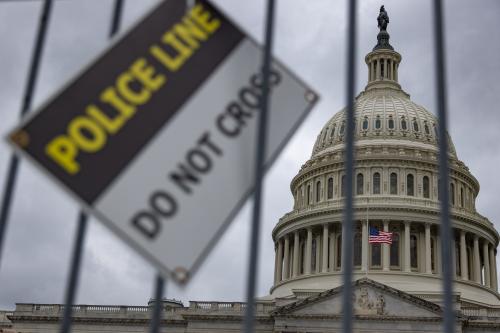Should the US ever rule out the use of nuclear weapons in particular circumstances?
This question is at the heart of the latest exchange between senators Hillary Clinton and Barack Obama as they compete for the presidential nomination of the Democratic party.
The tussle began when Mr Obama told a reporter that he would rule out using nuclear weapons in Afghanistan or Pakistan to target al-Qaeda as “a profound mistake”. Mrs Clinton countered by suggesting it was unwise to be specific about this issue. “I don’t believe any president should make blanket statements with the regard to use or non-use” of nuclear weapons, argued the junior senator from New York.
On the particulars, Mr Obama had the better part of the argument. No one has ever suggested that nuclear weapons are an appropriate or effective means for targeting the al-Qaeda leadership in the rugged Kush mountains. If we had good intelligence about their location, conventional forces would suffice to kill or capture the leaders. Without such intelligence, nuclear weapons would not be of much use—unless, of course, one were willing to contaminate and render uninhabitable the entire area by way of an atomic aerial bombardment. That is not, we think, what Mrs Clinton had in mind.
But the exchange between the two candidates raises a larger and more profound issue: what, in the current era, should be the purpose of America’s nuclear weapons? It has been nearly 20 years since the end of the cold war. And yet there has not been a fundamental debate about this crucial question. The time for one is now.
The orthodox view of what nuclear weapons are for maintains that, even at much reduced levels, such weapons are a central element in any national security strategy and constitute a core capability for defending American interests at home and abroad. They also reassure US allies of the country’s commitment to come to their defence and, consequently, persuade these allies to forgo their own nuclear weapons. In her remarks on the issue, Mrs Clinton suggested that she accepts this view. “Presidents since the cold war have used nuclear deterrents to keep the peace,” she explained.
Viewed from this perspective, there is no reason to discuss when or why the US might use nuclear weapons. The goal is to keep America’s enemies guessing about whether a president might decide to use nuclear weapons to stave off a conventional military defeat, destroy underground bunkers, retaliate against chemical or biological attacks, or even go after the al-Qaeda leadership. For that reason, America needs robust nuclear forces that are safe, secure, reliable and modern.
There is, however, another view of nuclear weapons—one that recognises how today’s threats are fundamentally different from the cold war days. America no longer fears a deliberate attack against its territory—nuclear or otherwise—from the likes of Russia or China. Nor, given its overwhelming conventional advantage, does it need nuclear weapons to defeat any threat of aggression that might exist.
America’s new nightmare is rather that nuclear weapons and technologies will spread to unstable regimes, and possibly even to terrorists. Nuclear deterrence plays at best a marginal role in curtailing this threat. Instead of emphasising nuclear deterrence, we must work to prevent the spread of nuclear weapons and technologies. We need to build strong export controls, better inspections and safeguards, tougher sanctions against violators and more targeted interdiction efforts.
We must also reduce the potential availability of these weapons and technologies. To that end, the US and the other nuclear powers should reduce their reliance on nuclear forces, decrease the size of their arsenals, remove weapons from “dangerous alert” status and strengthen physical security so that nuclear weapons are not stolen or transferred. The nuclear weapons we do keep should be the minimum necessary to prevent the use of any nuclear weapon by others.
Rather than debating which candidate has the most experience, is the strongest and toughest, or most favours change, we need to debate the nature of the world we live in and the appropriate way to respond to the new challenges that are out there. When it comes to nuclear weapons, is the most presidential stance the one that views nuclear weapons as another munition to brandish? Or is it one that accepts the legitimacy of possessing these weapons only to prevent them from ever being used again?
This is a debate worth having . But that requires that we engage with the issues. Our presidents (and presidential candidates) must engage with these issues too, and not shy away from any of the specifics.



Commentary
Op-edNuclear Weapons in the Age of al-Qaeda
August 13, 2007